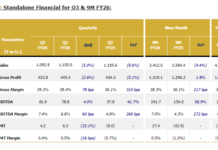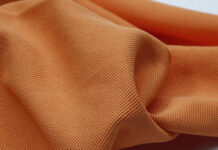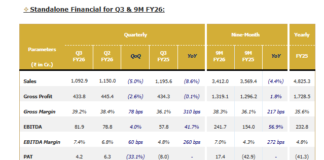The Lenzing Group, a world-leading provider of specialty fibers for the textile and nonwoven industries, has received further scientific proof that Lenzing fibers are biodegradable in the ocean and revert to being part of the ecosystem at the end of their life cycle. Scientists at the prestigious academic research institute Scripps Institution of Oceanography (SIO) at the University of California, San Diego confirmed back in 2021 that LENZING™ Lyocell fibers completely biodegrade in sea-surface conditions in a remarkably short time. In a second study published in May 2023[1], the biodegradability of LENZING™ Lyocell fibers, LENZING™ Viscose fibers and LENZING™ Modal fibers on the sea floor was also confirmed, providing definitive proof that they are a better alternative to petroleum-based fibers. The assessments are the result of an independent project aimed at understanding end-of-life scenarios for textiles and nonwovens that are discarded as waste in the environment.
SIO has a global reputation for being one of the oldest, largest and most important marine research centers. In its latest study, it compared the degradation processes of nonwovens made of petroleum and bio-based synthetic materials such as polyester and PLA, cellulosic materials such as cotton, and the Lenzing Group’s wood-based LENZING™ Lyocell fibers, LENZING™ Viscose fibers, and LENZING™ Modal fibers in specific scenarios. The materials were assessed in various real oceanic conditions and controlled aquaria conditions. The results of these experiments are striking: while the wood-based cellulosic fibers fully biodegraded within 30 days, both in sea-surface and sea-floor conditions, the petroleum-based fibers tested were practically unchanged after more than 200 days.
“Our business model is one of a circular economy. The Lenzing Group uses a highly efficient system of processing all raw materials to produce fibers that will return to the ecosystem at the end of their life cycle. Our goal is to raise widespread awareness of major challenges such as plastic pollution and, above all, offer a truly sustainable alternative to petroleum-based fibers,” comments Michaela Kogler, Project Manager in Research & Breakthrough Innovation at the Lenzing Group. “It is also important to raise awareness of biodegradability, as not everything with an “organic” label is genuinely compostable and biodegradable,” adds Kogler.
The biodegradability of LENZING™ Lyocell fibers, LENZING™ Viscose fibers, and LENZING™ Modal fibers has been tested in the laboratory of Normec Organic Waste Systems (OWS) in Belgium – one of the world’s leading companies in biodegradability and compostability testing. The latter confirmed the results in real oceanic conditions and controlled aquaria conditions. The assessment was conducted in accordance with the prevailing applicable international standards and reflects all the relevant natural and artificial environments in which biodegradation can occur. Certificates from the certification organization TÜV Austria show that LENZING™ Lyocell fibers, LENZING™ Viscose fibers, and LENZING™ Modal fibers rapidly biodegrade in all test environments (soil, industrial composting, home composting, fresh water, and marine water) within the time periods set by the relevant standards.
Tailwind from legislation
Plastic pollution in the environment is a major problem of our time and may continue to impact many generations to come. The environmental damage caused by the fashion industry as a result of fast fashion business models is particularly extreme. The use of petroleum-based synthetic fibers in textiles has approximately doubled in the last 20 years. This trend is likely to continue. More than half of all textiles around the world currently contain polyester and this proportion is set to rise according to a report from the non-profit organization Changing Markets Foundation[2].
Consequently, Lenzing also welcomes the EU’s targeted measures to combat plastic waste in general, such as those relating to the single-use plastic directive (EU) 2019/904[3]. In its recently adopted guidelines for implementing the directive, the EU Commission precisely stipulates the products that fall under this category, which will provide the necessary clarity for EU member states in their joint campaign against environmental pollution from plastic waste. Lenzing’s wood-based, biodegradable cellulosic fibers can play a role in creating a sustainable and innovative solution to this man-made problem, which will escalate in the future. The single-use plastic directive introduced in July 2021 sets out standardized labeling requirements for certain products, either on the packaging or on the products themselves, such as plastic-based feminine hygiene products and wet wipes for body care or household use. One of the first steps towards solving this problem is to educate consumers and offer alternative, more circular materials.
[1] https://journals.plos.org/plosone/article?id=10.1371/journal.pone.0284681
[2] http://changingmarkets.org/wp-content/uploads/2021/01/FOSSIL-FASHION_Web-compressed.pdf
[3] Directive (EU) 2019/904 of the European Parliament and of the Council of 5 June 2019 on the reduction of the impact of certain plastic products on the environment












